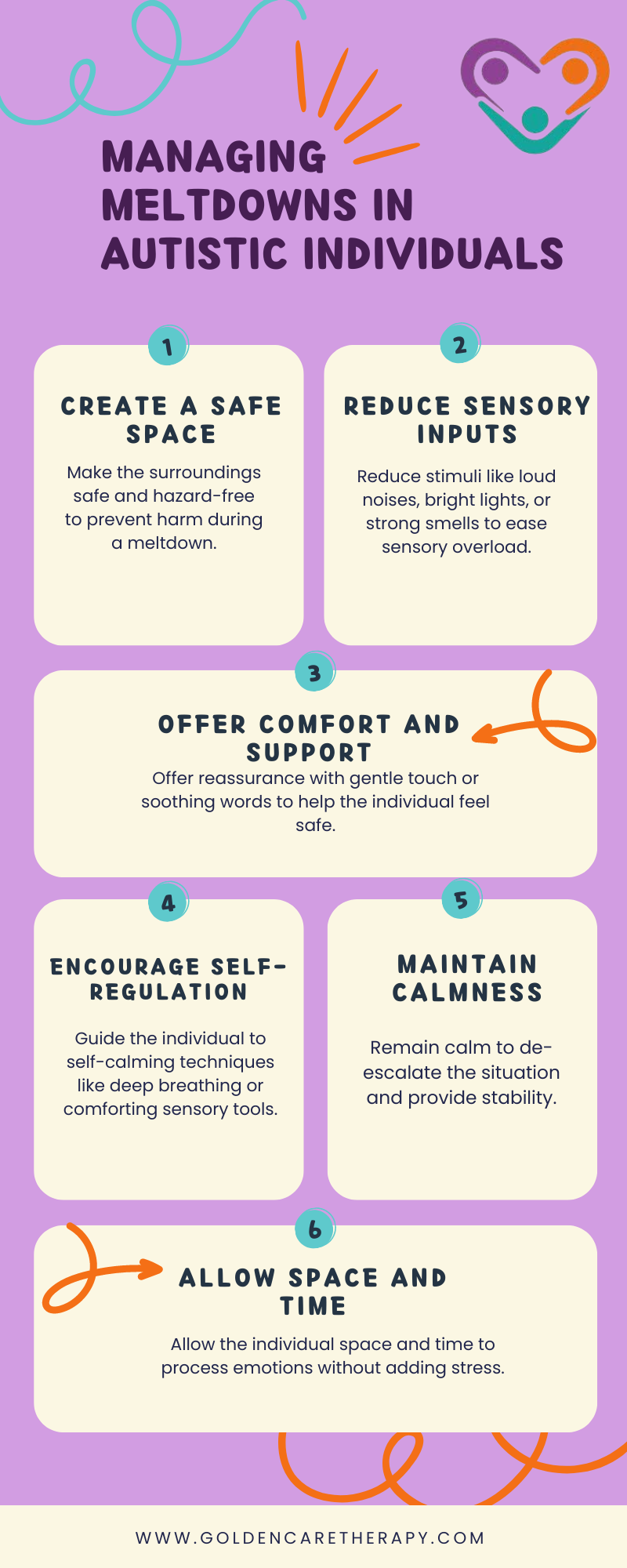
Table of Contents
Anger can be a powerful and challenging emotion for anyone, but for individuals with autism, it might be experienced and expressed in unique ways. Understanding these anger issues can help in finding effective strategies to support those who face them.
Anger in autism can be triggered by various factors, including sensory overload, communication difficulties, and unmet needs. By exploring the nature of these anger responses and the underlying causes, we can better address and manage these emotional experiences.
What Causes Anger Outbursts in Autistic Individuals?
Individuals diagnosed with autism spectrum disorder often experience anger outbursts characterized by sudden shifts in demeanor, where they can transition from a calm state to an eruption of anger.
There are several key factors that contribute to these outbursts such as:
- Sensory Sensitivities: Heightened sensitivity to sensory stimuli like noises, lights, or textures, leading to sensory overload and emotional dysregulation.
- Communication Challenges: Difficulty in expressing thoughts and needs effectively, which can lead to frustration and feelings of being misunderstood.
- Emotional Regulation Difficulties: Challenges in managing emotions and responding appropriately to situations, resulting in outbursts as a way of coping with overwhelming feelings.
- Disruptions to Tasks and Routines: Changes to routines or unexpected disruptions can trigger anxiety and distress, causing individuals to react with anger.
- Memory and Processing Speed Issues: Difficulties in processing information, memory retention, and cognitive overload can contribute to feelings of frustration and heightened emotional responses.
Impact of Anger on Autistic Individuals
Anger can have a profound impact on autistic individuals, as it can affect their emotional well-being, relationships, and overall quality of life. Autism rage episodes can lead to heightened stress levels, difficulties in social interactions, and challenges in daily functioning.
The inability to effectively cope with anger and regulate emotions can result in increased feelings of frustration, isolation, and a sense of being overwhelmed.
Understanding and addressing autism rage is essential for promoting the emotional and psychological well-being of individuals on the autism spectrum. By recognizing the signs of anger rumination and learning strategies to manage and diffuse anger, caregivers and autistic individuals can work towards reducing the frequency and intensity of anger outbursts.
Coping Strategies for Autistic Individuals
Autistic individuals may experience difficulties managing anger and frustration due to various factors unique to their condition. Luckily, there are several coping strategies tailored to help autistic individuals navigate their emotions effectively.
Let’s look at each of them.

Recognizing early warning signs is essential in preventing escalation to anger outbursts in autistic individuals. These signs can vary from person to person but may include increased agitation, changes in breathing patterns, repetitive movements, or heightened sensitivity to sensory stimuli.
Identifying these cues early on allows caregivers and individuals to intervene proactively to de-escalate the situation and prevent potential meltdowns.
Self-Calming Techniques
Self-calming techniques play a crucial role in helping autistic individuals regulate their emotions and manage anger effectively. These techniques can include deep breathing exercises, mindfulness practices, progressive muscle relaxation, or engaging in sensory activities like fidget toys or sensory bins.
Incorporating self-calming strategies into daily routines helps autistic individuals learn to soothe themselves when feeling overwhelmed or agitated.
Using Communication and Visual Cues
Effective communication is key in supporting individuals with ASD in navigating their anger issues. Establishing clear and consistent communication strategies, such as using visual schedules, social stories, or picture symbols, can help autistic individuals understand expectations and transitions, reducing potential triggers for anger.
Visual cues provide a tangible way to convey information and foster predictability, which is essential for autistic individuals to feel secure and in control of their environment.

How to Manage Autistic Meltdowns
Individuals with autism may experience meltdowns in response to overwhelming situations, triggered by factors such as sensory overload, social challenges, and stress. These meltdowns can manifest as emotional outbursts, including crying, screaming, self-harm, or withdrawal.
Understanding the symptoms of meltdowns and implementing effective strategies to help during these episodes is crucial for caregivers and individuals involved.
Autistic meltdowns can present in various ways, depending on the individual and the triggers involved. Some of the most common symptoms of meltdowns may include:
- Crying or screaming uncontrollably
- Engaging in self-harming behaviors
- Withdrawing from social interactions
- Exhibiting aggressive behavior towards themselves or others
- Feeling overwhelmed and unable to communicate effectively
Recognizing these signs is essential in providing timely support and intervention to help manage the meltdown effectively.
It is important to note that once an autistic meltdown has begun, it can’t be stopped abruptly, as the individual is in a state of emotional dysregulation. However, there are strategies that can be employed to provide support and create a safer environment during the meltdown.
These are as follows:

Understanding the symptoms of meltdowns and implementing supportive strategies will help caregivers and individuals effectively navigate through these challenging episodes with empathy and patience.
Providing a safe and nurturing environment during meltdowns can help individuals with autism regain their emotional balance and cope with overwhelming situations more effectively.
Dealing with Anger Issues in Autistic Individuals
Addressing anger issues in autism requires a deep understanding of the factors that can contribute to emotional distress. In autistic individuals, feelings of overwhelm and disruptions to routines can often lead to expressions of frustration and difficulties in communication.
They may experience feelings of overwhelm when faced with unexpected changes or sensory overload. The inability to cope with sudden transitions or routine disruptions can trigger feelings of anxiety and frustration. These overwhelming situations can lead to anger outbursts as a way of expressing distress or seeking control in an uncertain environment.
To support individuals with autism in managing feelings of overwhelm, it is essential to create a structured and predictable routine that minimizes surprises and provides a sense of stability.
Visual schedules, social stories, and clear communication can help prepare individuals for upcoming events or changes, reducing the likelihood of emotional meltdowns.
Communication difficulties are also a common source of frustration for individuals with autism. The challenges in expressing thoughts and emotions effectively can lead to feelings of isolation and misunderstanding, contributing to anger and emotional outbursts.
When communication breakdowns occur, individuals may resort to non-verbal expressions of anger, such as meltdowns or self-injurious behavior.
To address communication challenges in autism, it is crucial to implement alternative communication strategies that cater to the individual’s unique needs. Visual supports, augmentative and alternative communication (AAC) devices, and social skills training can help improve communication skills and reduce frustration.
The Key Takeaway
Understanding autism anger issues is crucial for fostering better communication and support. By recognizing the unique triggers and responses, we can create more compassionate environments and offer effective strategies to help manage these emotions.
Remember, patience and empathy are key. With the right tools and support, individuals with autism can navigate their emotions more effectively and thrive in their daily lives. For professional guidance and personalized support, consider reaching out to Golden Care Therapy. We offer ABA services in Georgia, New Jersey, Indiana, and New York. Contact us today to learn how we can assist you and your loved ones.
Sources:
- Autism and Feeling Empty: What’s the Connection? - September 19, 2024
- Addressing Autism and Anger Issues - September 19, 2024
- Embracing Autism and Self-Acceptance in Daily Life - September 19, 2024
